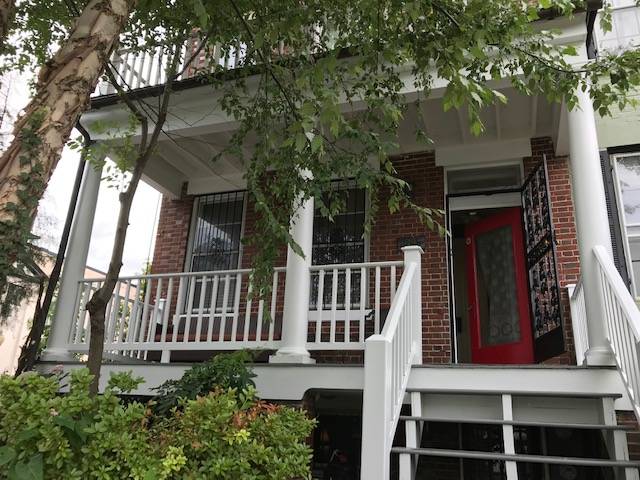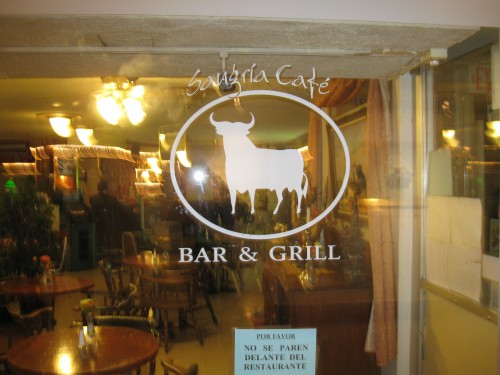
Tony runs the blog goodenoughgatsby and last contributed to PoP in a post about life in the Woodner. We judged the Sangria Cafe back in July ’09.
Controversy swirls around the Sangria Cafe, a restaurant and bar in the lobby of the Woodner, (3636 16th St NW) the apartment building I call home. Based on some of the comments I get when I mention Sangria, many people think it is home to nothing but sots and stumblebums and MS-13. I have lived at the Woodner for a little over six months now, and I am surprised every day at some of the incidents. But every day, with the exception of Monday nights, the Sangria Cafe opens its doors to residents and outsiders alike.
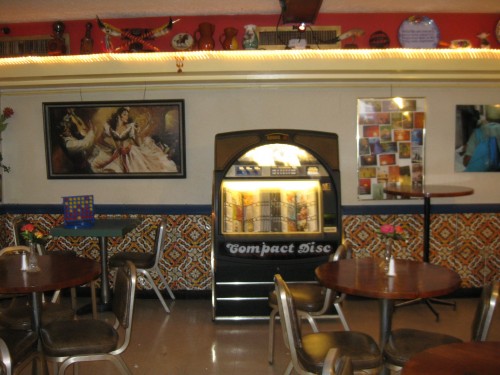
Most nights only a handful of people are at the bar, ordering beer or food. Patrons filter in and out. A pair of tiny televisions dating to the early Clinton administration hangs on either side of the black formica bar, silently broadcasting subtitles and plots and subplots of telenovelas. A jukebox in the corner blares the sounds of drums and trumpets across a pool table, past the wooden tables, and out the giant windows into the Woodner’s main corridor. At the front of the place, a pair of bull’s horns sits atop a chest of drawers. A sign, written in Spanish and posted near the men’s restroom, suggests the barest hint of sordidity, advising patrons that the sale and use of illegal drugs is prohibited and the Sangria Cafe’s management will eject violators, as well as notify the police. “El que avisa no es traidor,” the sign admonishes. The one who informs is not a traitor. It’s important to know where Sangria Cafe stands in the drug war.
Continues after the jump.
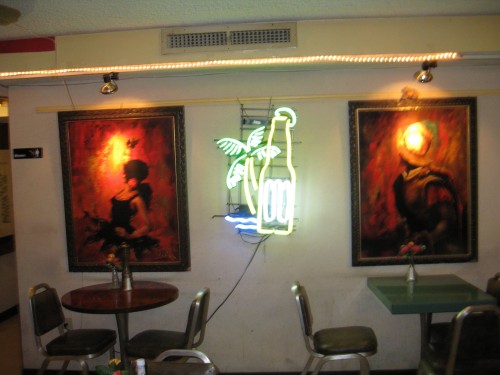
The Sangria Cafe today is the product of a complex history—one that cuts to the heart of the Woodner Apartments. The owner of Sangria, a Spanish native named Victor is a genial, confident man in his mid-thirties who derives a thoroughgoing satisfaction from his job. He is easily the happiest person I’ve met since I’ve been living here. Victor sat down with me and told the story of how his restaurant came to be. In 2002, the previous owner, a man named Fiorello sold the place to him because the Woodner sisters started to charge him rent on his restaurant. Before the original owner died, he had allowed Fiorello to keep his restaurant rent-free. He couldn’t afford to pay the rent the Woodner sisters wanted to charge him so he sold his restaurant to Victor, a chef. The first incarnation of the Sangria Cafe was a “first-class” restaurant, in Victor’s words, based on information about the tastes and income of the residents that the Woodner ownership provided, information he now views as something of a canard. As a result, people couldn’t afford to eat there.
“People were coming to the restaurant just to take pictures,” he said.
Victor changed the restaurant, getting rid of the square tables and the linen tablecloths. He redecorated it with items that were personally important to him. The bull’s horns are from a bullfight he watched. The antique irons hanging on the wall are from Spain. He decorated a spot on the wall above the bar sink with a collection of medieval keys. For income, he sold only donuts and snacks at first. He started selling beer not long after that, and in 2004, a customer came in and asked for pupusa. “I didn’t know how to make pupusa at first,” he says. In response to customer demand, he began selling Latin American foods like quesadillas and pupusa.
It’s difficult to characterize the food at Sangria. The menu, encased in a flimsy red plastic that’s bubbled and wrinkled, is a mélange of Spanish, Latin American, and American fare. The menu, as does the restaurant, utterly resists any attempts at pretense. The quality of the food depends on what you order. The pupusa are very decent, as are the fried plantains. I recommend against the ceviche. Victor seems to understand that his restaurant isn’t exactly haute cuisine. “It’s not as professional a place as I’d like, but I’m catering to my customers,” he says.
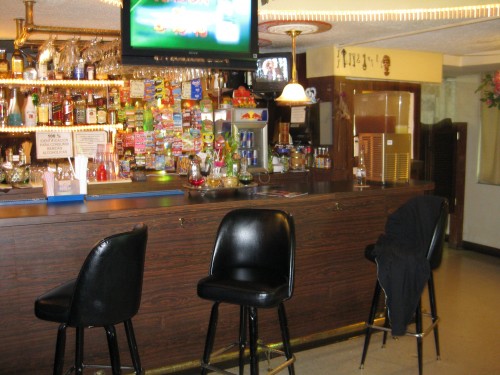
The real attraction isn’t the food, though. The Woodner is a massive apartment complex, home to over a thousand individual units, most of them studios. The residents are absolutely desperate for vital signs. This bar and restaurant, they serve a critical social function in the life of this building. It isn’t the den of iniquity that many think it is. Most people who come here are not criminals or gangsters, they’re just people who live by themselves in a building full of people who live mostly by themselves. Victor himself understands this. Indeed, Victor himself is seen by many bar-goers as a kind of celebrity, a latter-day Rick Blaine in a microcosmic Casablanca. Of his Cafe Americain, he says, “I miss windows on the street,” but believes in his mission to provide camaraderie to the sometimes beleaguered denizens of the Woodner. “When people live by themselves,” he says, “they disconnect.”
Recent Stories
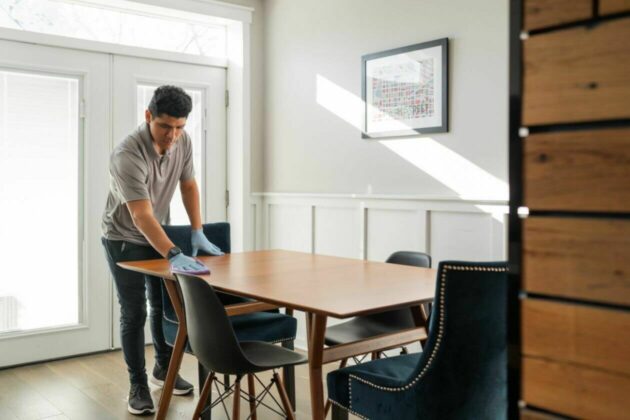
For many remote workers, a messy home is distracting.
You’re getting pulled into meetings, and your unread emails keep ticking up. But you can’t focus because pet hair tumbleweeds keep floating across the floor, your desk has a fine layer of dust and you keep your video off in meetings so no one sees the chaos behind you.
It’s no secret a dirty home is distracting and even adds stress to your life. And who has the energy to clean after work? That’s why it’s smart to enlist the help of professionals, like Well-Paid Maids.

Unlock Peace of Mind for Your Family! Join our FREE Estate Planning Webinar for Parents.
🗓️ Date: April 25, 2024
🕗 Time: 8:00 p.m.
Metropolitan Beer Trail Passport
The Metropolitan Beer Trail free passport links 11 of Washington, DC’s most popular local craft breweries and bars. Starting on April 27 – December 31, 2024, Metropolitan Beer Trail passport holders will earn 100 points when checking in at the
DC Day of Archaeology Festival
The annual DC Day of Archaeology Festival gathers archaeologists from Washington, DC, Maryland, and Virginia together to talk about our local history and heritage. Talk to archaeologists in person and learn more about archaeological science and the past of our




